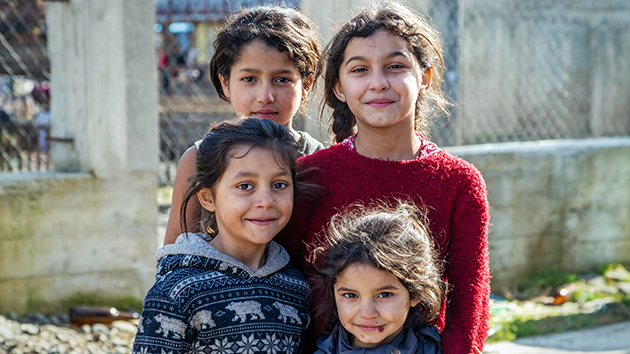
Every year on 8 April, International Roma Day honours the contribution of the Romani people to European history and cultural diversity. The Roma are Europe's largest ethnic minority of around 10-12 million Roma population – with more than six million living in the EU, and four million in the enlargement countries (the Western Balkans region, Turkey, Ukraine, Republic of Moldova and Georgia).
In a statement celebrating this year’s Roma Day, Vice-President for Values and Transparency, Vĕra Jourová, Commissioner for Equality, Helena Dalli, and Commissioner for Neighbourhood and Enlargement Negotiations, Olivér Várhelyi, highlighted encouraging developments in Member States that actively address anti-gypsyism and discrimination against Roma, yet stressed that ‘[…] progress is too slow and too little. Too many Roma still do not have equal access to education, employment, healthcare or housing.’
The Commissioners therefore called for working together at local, national and regional level, to address marginalisation, widespread discrimination and the socioeconomic exclusion of Romani people.
Investing in equality
Adopted in October 2020 as part of the EU’s overall political priority to advance a Union of Equality, the EU Roma Strategic Framework put forward new targets and recommendations for Member States, to make headway in providing the vital support that so many Roma living in the EU still need.
Implementing the strategy, 15 EU Member States have programmed a total of nearly €2.5 billion from the European Social Fund Plus (ESF+) for the 2021-2027 programming period to support marginalised communities, including Roma. Sixty per cent of these funds are allocated in countries that face greater challenges for the social inclusion of Romani people, including Bulgaria, Czechia, Hungary, Slovakia and Romania. The use of these funds will promote equal access to quality healthcare, training and education, as well as provide vital support for housing and other material assistance.
Continued support
As the EU’s biggest instrument for investing in people, ESF+ builds on the success of the European Social Fund (ESF), which has a long history of supporting Roma social inclusion across all EU Member States, with some recent examples:
-
In Lithuania, the ‘Let’s Work with Roma’ project helped many young Romani to find their feet, including a young entrepreneur to open his own restaurant and gain recognition on national TV. Implemented by the Public Institution Roma Community Centre and funded by the ESF, the project enabled Lithuanian communities to break down socioeconomic barriers and negative stereotypes. 'Let’s Work with Roma’ provided access to informal and formal qualifications, and combined activities to give young Roma people a chance to find work they enjoy.
-
In Hungary, the project ‘Growing/Women’s Opportunities’, active in 66 employment sites across the country and involving people from Roma communities – particularly women – who face social prejudice and labour market discrimination. equipped them with qualifications for jobs in childcare, healthcare and social care. By helping nearly 1000 Romani women into training and work, the project also strengthened participants' sense of social inclusion.
Projects such as these, focusing on women and young people, are critical to achieve real equality and social inclusion for Romani people, supporting their integration into European society. As underlined in the Commissioners’ statement, ‘Together, we must build a culture of support and inclusion and honour Roma people's contribution to our European cultural heritage.’



